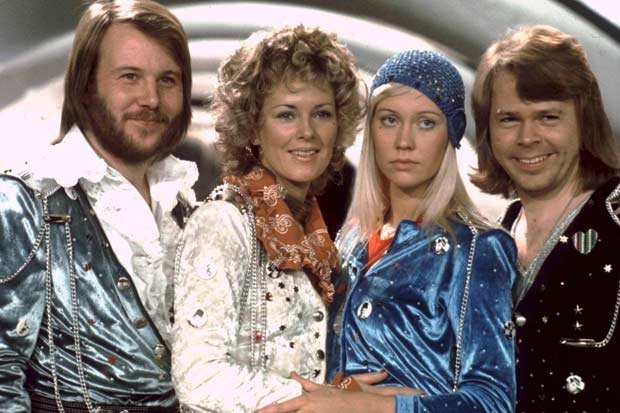This is the one that started it all – ‘Waterloo’ won ABBA the 1974 Eurovision song contest and kickstarted the tide of ‘Abbamania’ that would lead to their domination of the albums and singles charts across the world for the rest of the decade.
Bass Transcription: ABBA – ‘Waterloo’.pdf
The feel of ‘Waterloo’, a rock song with an underlying shuffle feel and a tangible jazz influence, was unusual for Eurovision. The particular rhythmic feel, combined with the 4-to the bar ‘walking bass’ and saxophone in the chorus shows the influence of 1970s British glam rockers (and festive favourites), Wizzard:
The bass part on ‘Waterloo’ alternates between steady shuffled eighths in the verses (complete with hammer-on approaches from a semitone below, a la The Sex Pistols) and a pseudo-jazz walking bass line in the chorus. The low D in the chorus can easily be octave transposed if you don’t own a 5-string or are unwilling to detune for one note.
The credit for the bass playing on ‘Waterloo’ is unclear. It has the hallmarks of Mike Watson’s rock-influenced playing (check out his part on ‘Mamma Mia’ for similar driving root note lines) and he was even on the cover of the Waterloo album, albeit dressed as Napoleon and facing away from the camera.
Various online resources including Wikipedia, Allmusic and Discogs as well as various bass nerd havens don’t appear to confirm whether it was Mike or Rutger Gunnarsson, ABBA’s other long-term low-end supplier.

